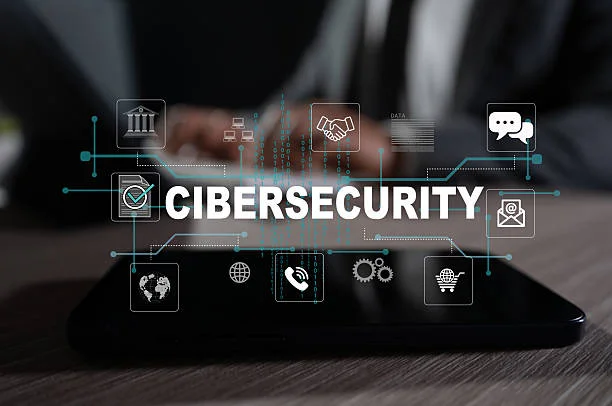Cybersecurity has rapidly transformed from a niche domain into a global necessity. With organisations across industries facing increasing digital threats, the demand for cybersecurity professionals has skyrocketed. However, succeeding in this dynamic field requires more than just technical knowledge; it demands continuous learning, strategic career planning, and practical exposure. This blog offers a comprehensive roadmap to becoming a cybersecurity expert, highlighting the essential skills, educational pathways, and career opportunities that can help professionals build a successful future in the field.
Introduction
Cybersecurity is much more than a matter of IT—it’s about protecting trust.” In today’s interconnected world, cyber threats are no longer occasional disruptions but daily realities. From small businesses to global enterprises, every organisation needs skilled defenders who can safeguard digital assets. Many businesses also rely on professional IT support in Kauai to maintain security and ensure operational continuity. For aspiring professionals, choosing the right cyber security course is often the first step toward building expertise and credibility. But beyond certifications, the journey to becoming an industry expert involves mastering technical skills, understanding the evolving threat landscape, and developing a long-term career strategy.
Step 1: Building a Strong Educational Foundation
The foundation of a cybersecurity career begins with a solid understanding of computer science, networking, and information technology. Many professionals come from backgrounds in IT, software engineering, or systems administration. While a degree in computer science or information security provides a strong starting point, it is not always mandatory.
Those entering the field should focus on:
- Networking Basics: Understanding TCP/IP, firewalls, and VPNs.
- Operating Systems: Gaining hands-on experience with Windows, Linux, and macOS.
- Programming Skills: Familiarity with Python, Java, or C++ for writing scripts and understanding exploits.
For beginners, structured learning through online platforms, bootcamps, or diploma programs can provide the right balance of theory and practice.
Connect the dots with this related post crafted to expand your perspective.
Step 2: Choosing the Right Cybersecurity Path
Cybersecurity is not a one-size-fits-all field—it offers multiple specialisations. Some of the most in-demand paths include:
- Network Security Specialist: Protecting and managing network infrastructure.
- Incident Responder: Handling breaches, mitigating damage, and preventing future attacks.
- Ethical Hacker/Penetration Tester: Simulating attacks to find vulnerabilities.
- Cloud Security Specialist: Securing data and systems in cloud environments like AWS or Azure.
- Compliance and Risk Analyst: Ensuring organisations meet regulatory and security standards.
Exploring these options early helps professionals align their training and certifications with their career aspirations.
Step 3: Gaining Industry Certifications
Certifications act as career accelerators in cybersecurity, signalling expertise and dedication. Some globally recognised certifications include:
- CompTIA Security+: Entry-level certification for foundational knowledge.
- Certified Ethical Hacker (CEH): Ideal for penetration testers and ethical hackers.
- CISSP (Certified Information Systems Security Professional): Advanced certification for leadership and policy-making roles.
- CISM (Certified Information Security Manager): Focuses on risk management and governance.
Choosing certifications aligned with a chosen career path can help build credibility and improve job prospects.
Step 4: Developing Hands-On Experience
Theory alone cannot make one a cybersecurity expert. Practical exposure through internships, lab simulations, or bug bounty programs is essential. Platforms like Hack The Box or TryHackMe provide real-world challenges where aspiring professionals can practice penetration testing, malware analysis, and system hardening.
Additionally, contributing to open-source security projects or participating in Capture the Flag (CTF) competitions helps sharpen technical and analytical skills while demonstrating initiative to potential employers.
Step 5: Building Soft Skills Alongside Technical Expertise
While technical skills are critical, employers also value professionals who possess strong soft skills. Some of the most crucial include:
- Analytical Thinking: The ability to quickly assess threats and identify patterns.
- Communication Skills: Explaining technical concepts to non-technical stakeholders.
- Problem-Solving: Developing creative solutions to evolving threats.
- Collaboration: Working effectively within cross-functional teams.
Cybersecurity experts who combine technical mastery with strong interpersonal skills are better positioned for leadership roles.
Step 6: Staying Updated with Evolving Threats
Cybersecurity is a field where change is the only constant. New attack vectors, AI-driven threats, and advanced phishing techniques emerge regularly. To remain relevant, professionals must commit to lifelong learning through:
- Attending industry conferences and webinars.
- Subscribing to cybersecurity journals and blogs.
- Engaging in continuous training and advanced certifications.
This proactive approach ensures that professionals not only adapt but also lead in shaping industry practices.
Step 7: Career Growth and Specialisation
As cybersecurity professionals gain experience, they can move into leadership or specialised roles. Potential growth paths include:
- Security Architect: Designing enterprise-wide security systems.
- Chief Information Security Officer (CISO): Leading an organisation’s cybersecurity strategy.
- Forensic Analyst: Investigating breaches and analysing digital evidence.
- Adversarial AI Specialist: Addressing threats that leverage artificial intelligence.
Such roles require a blend of technical depth, strategic vision, and leadership skills.
Conclusion
Becoming a cybersecurity industry expert is not an overnight journey; it is a process of continuous growth, specialisation, and resilience. From laying a strong educational foundation to mastering advanced certifications, hands-on practice, and soft skills, each step builds toward expertise. For those aspiring to excel in this field, enrolling in a comprehensive iit cyber security course can serve as the launchpad for long-term success. As cyber threats evolve, so too must the defenders—those who are prepared will not only find rewarding careers but will also play a crucial role in safeguarding the digital future.
For organizations, protecting digital assets requires proactive, professional intervention. You can search online for terms like penetration testing Sydney or cybersecurity services near me to find professionals who can help you protect your digital assets.
Curiosity doesn’t end—explore more stories shaping bold ideas today at Management Works Media.






